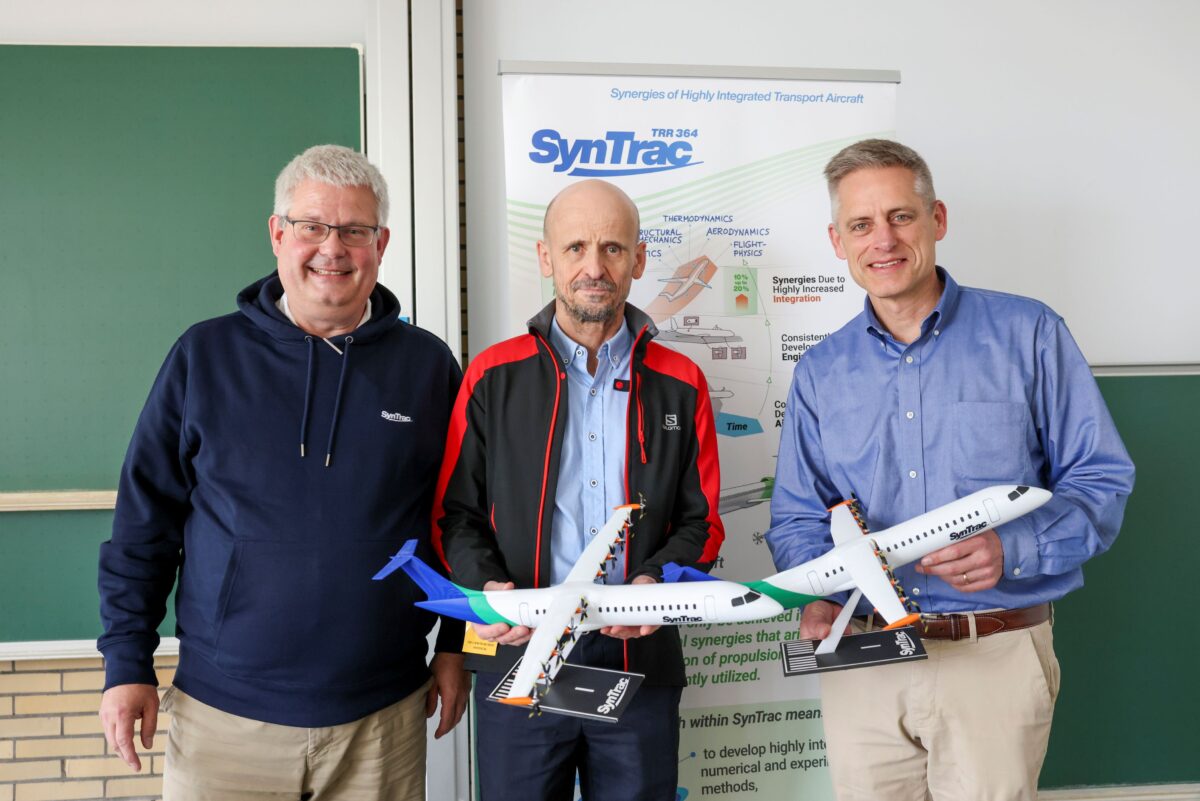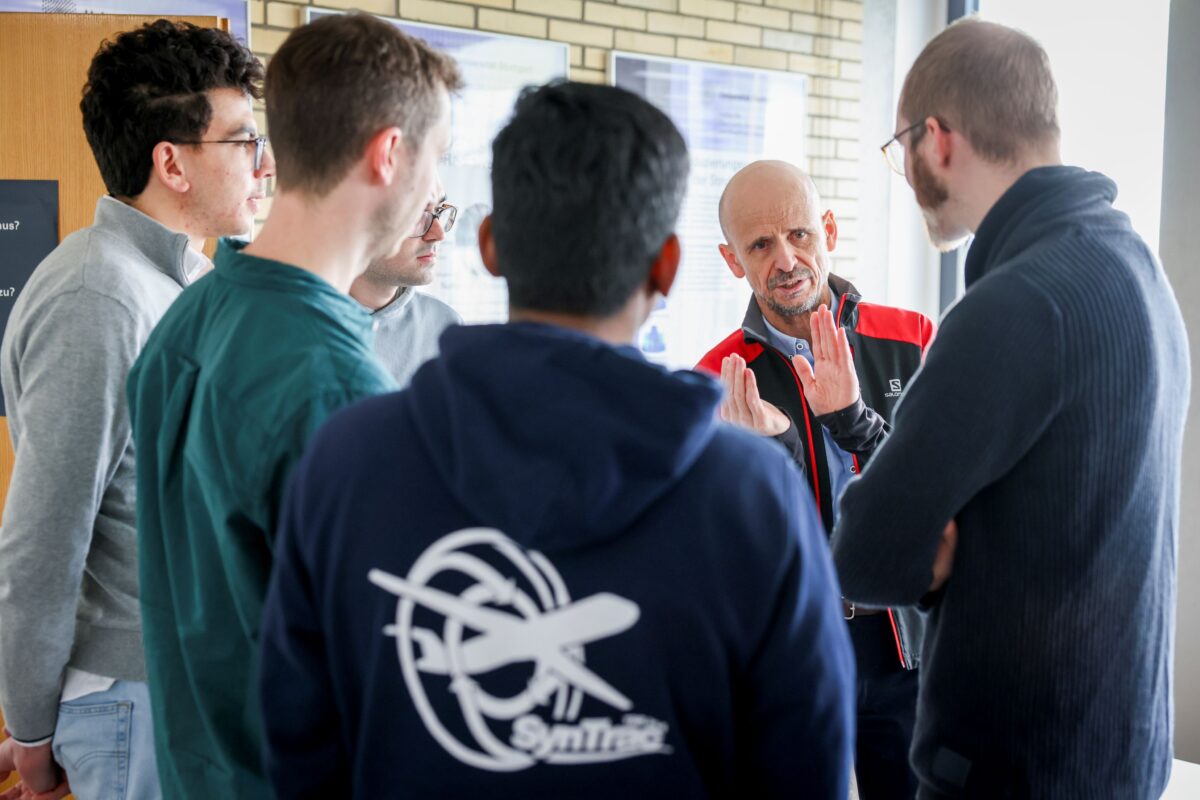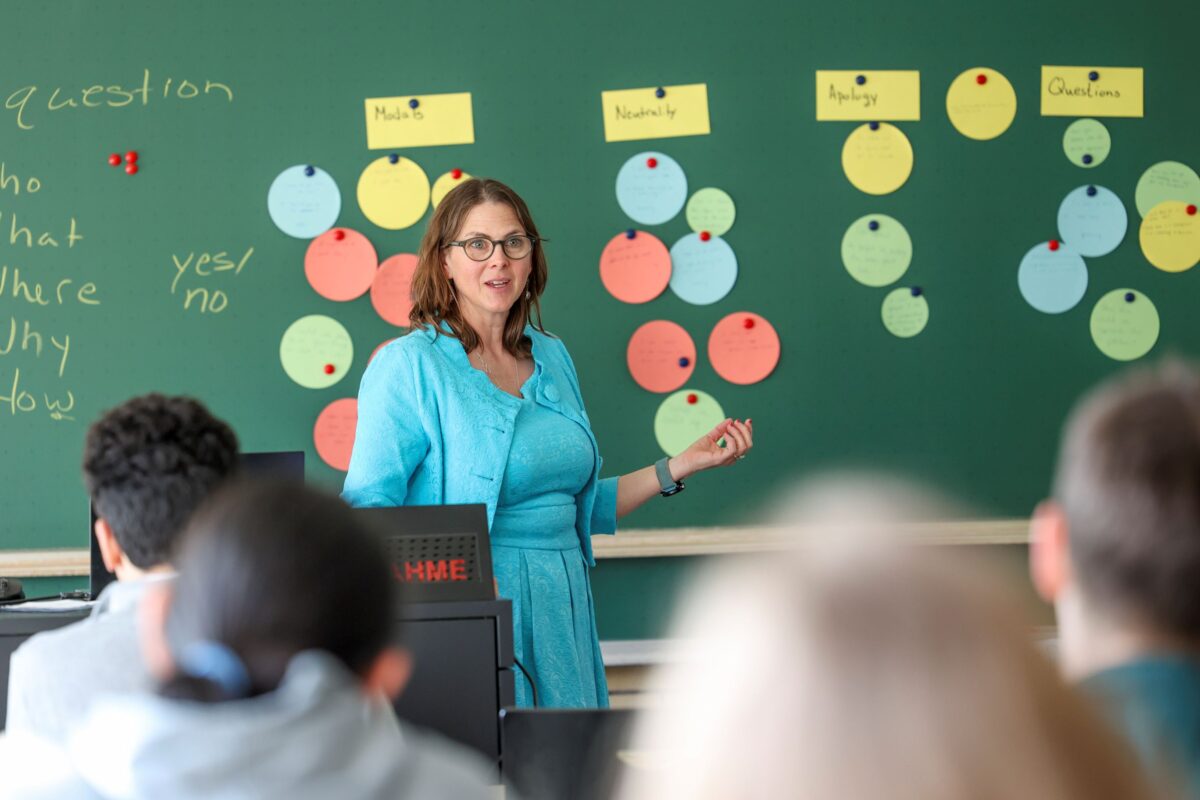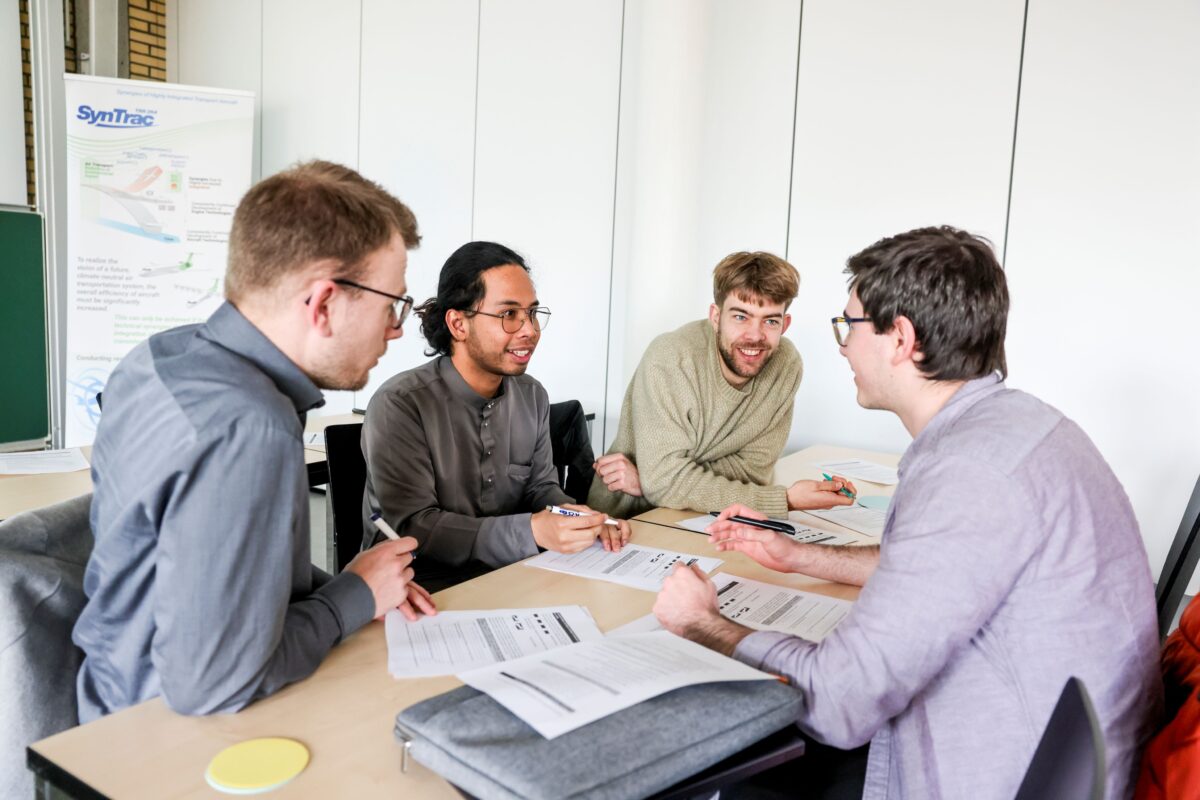Winter School 2025: Focus on international collaboration and excellence
Visiting researchers from all over the world, an International Female Program and an ongoing lecture series with world-renowned experts – SynTrac conducts cutting-edge research with an international perspective. This is also reflected in the training of doctoral students through the Integrated Research Training Group. This year’s Winter School took place in Stuttgart and was an excellent example of SynTrac’s global approach. Two renowned experts from the USA took part in the event: Professor Mark Drela from MIT and Professor Jeffrey Bons from Ohio State University.

Insights from leading experts
In his lecture, Professor Mark Drela presented the power balance method he developed and the motivation behind it. The method enables the joint evaluation of drive, aircraft and their interactions. It is therefore an excellent starting point for evaluating the synergy effects investigated in the SFB-TRR 364 SynTrac. He then took the students on a journey in which they critically examined design approaches and tools that are crucial for projects that, like SynTrac itself, cross existing boundaries.
A special moment of the event was Professor Drela’s participation in a workshop based on the method he developed. Taking up the ideas of other researchers, applying them and developing them further is part of progress in research. However, it is rare to have the opportunity to discuss a tool with the creator of the method it is based on in a dedicated workshop. The workshop was organized by the two doctoral students Myles Zabel (University of Stuttgart) and Boris Britto (TU Braunschweig) who are working in sub-project A02. Their work in SynTrac is based on the aforementioned power balance method and they demonstrated its application in a new tool.

Professor Jeffrey Bons’ contribution complemented the methodological discussions with a series of presentations on topics such as fouling in aircraft engines (unwanted accumulation of deposits on surfaces, associated with performance degradation), active flow control on airfoils and improved turbine cooling. His insights into the profession of researcher were also particularly vivid and valuable for the students. Professor Bons stated that education is more than just mastering a particular discipline. Rather, it is about the art of being curious and solving problems.
Professor Bons’ personal comment that he was born in Germany and spent his early childhood here was particularly memorable. This reminded everyone of how interconnected the world is and why research and beyond must think globally.

Building intercultural competence
A career in research today must be thought of in global terms. Therefore, the importance of intercultural competence in international research collaborations was also emphasized at SynTrac Winter School. Researchers should be able to work effectively in multinational teams, navigate different academic environments and understand cultural differences in communication, ethics and research practice.
To further support this, the Research Training Group organized a special workshop on intercultural competence, which this year focused on North America, the home of Prof Drela and Prof Bons.

A lively and inspiring exchange
The Winter School was both intellectually stimulating and created a dynamic atmosphere for discussion. Many doctoral students already gave positive feedback during the event. It makes the SynTrac Winter School a good example of the project’s commitment to international collaboration, excellence and the development of the next generation of aerospace engineers and researchers.

All Photos: Uli Regenscheit




